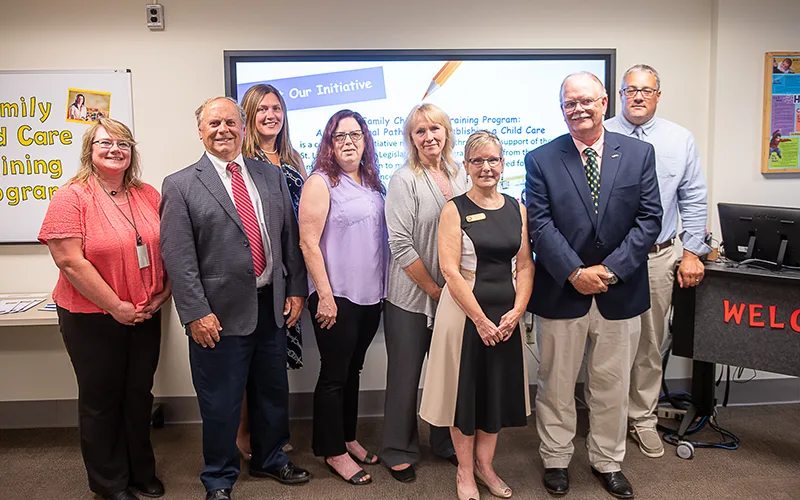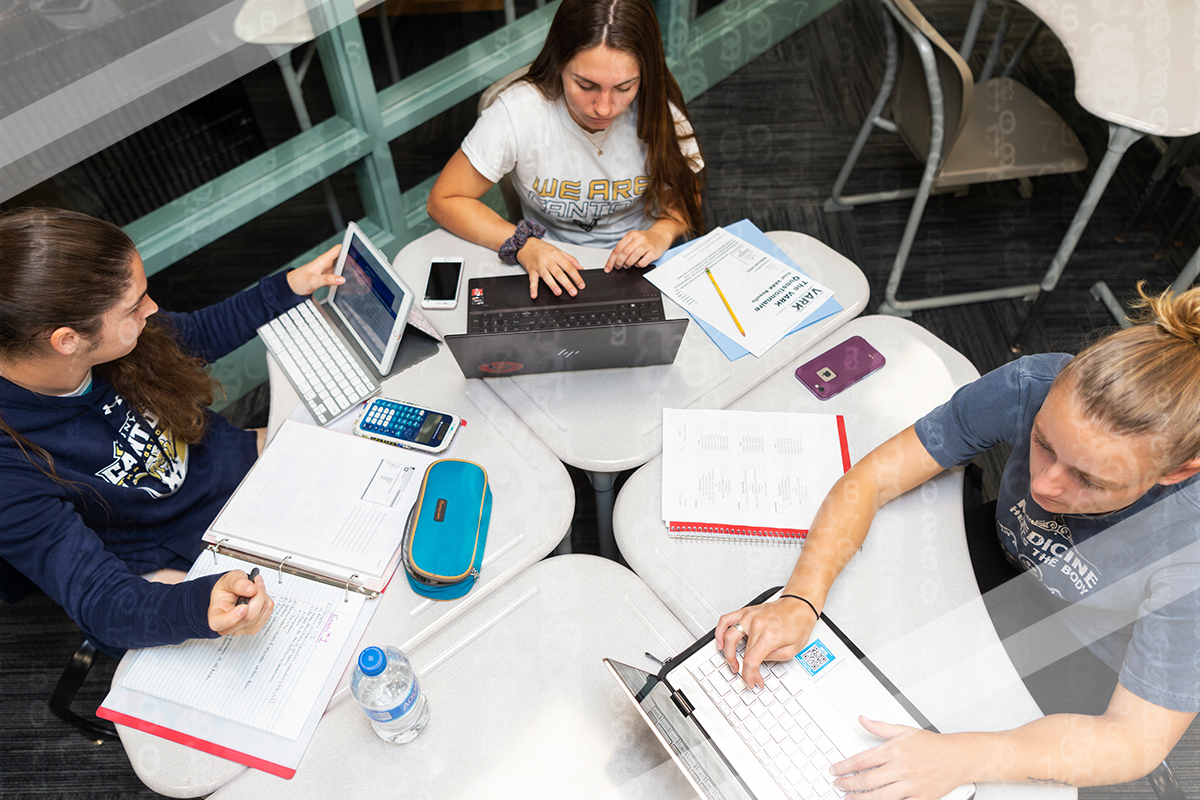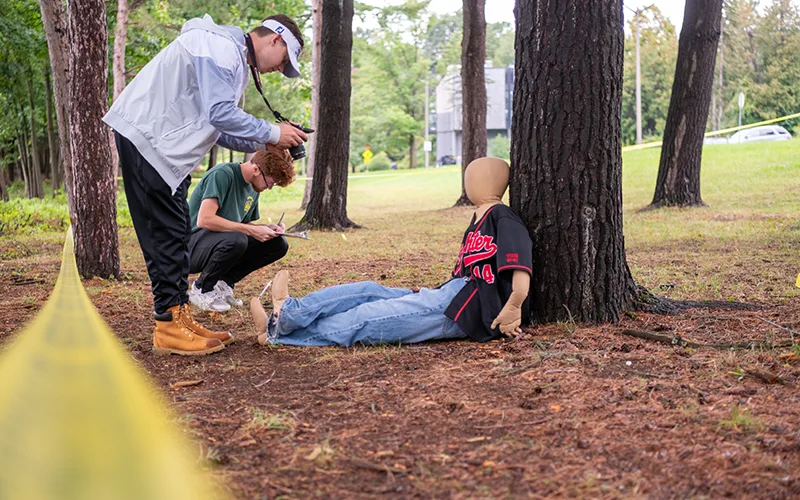
This microcredential consists of two courses offered online or on campus that teach the investigative skills needed in the field during crime scene processing and medical examinations. Online or on-campus.

After rising to the challenges brought on by the pandemic, our campus was reinvigorated at the beginning of the 2021-2022 academic year when we learned that the College had received its highest-ever assessment by U.S. News & World Report. I believe these rankings are even more significant because of the climate in which they were achieved, and they deserve a moment of recognition.
Most impressively, we advanced seven spots on the Regional Colleges (North) list, landing in 12th place, and jumped several spots in the Best Public Regional Colleges (North) category, breaking into the top 10 at ninth place. These scores directly reflect to our ability to ensure high academic quality and develop robust support services for both on-campus and online students.
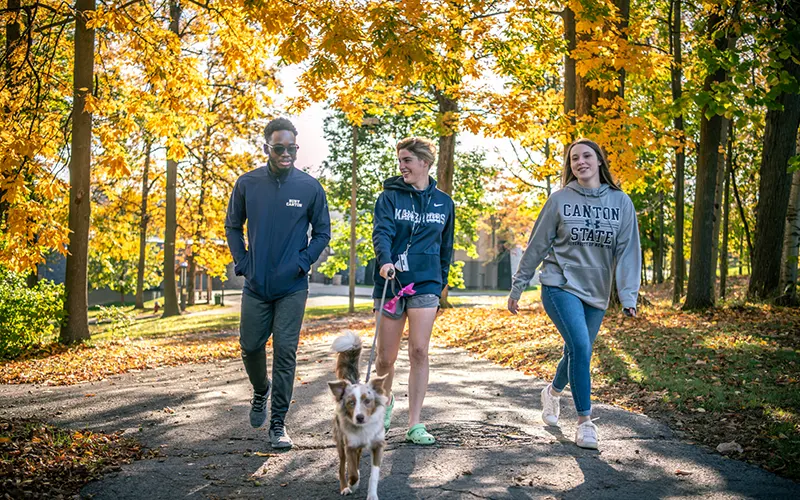
Another point of pride is our military-friendly culture, so it was gratifying to learn we earned sixth place on the Best Regional Colleges for Veterans (North) list. Also noteworthy was a prestigious Gold status designation on the 2022 Military Friendly School ranking.
Our affordability, accessibility, and in-demand degree programs are just a few of the reasons that we appeared near the top of the U.S. News’ Social Mobility category in 15th place. There is still work to be done, and we are continuing to explore ways to help our students to advance their skill sets, salaries, and professional networks, most notably through microcredentialing.
Although independent rankings and recognitions are valuable indicators of our performance, the in-depth self-study we have begun to reaffirm our Middle States accreditation is the most important barometer of whether we are meeting learning outcomes and the College’s seven Strategic Plan goals.
This report is structured to demonstrate how our accomplishments from the past year support those goals, while illustrating how we remain a premier college of technology.
Zvi Szafran
SUNY Canton President
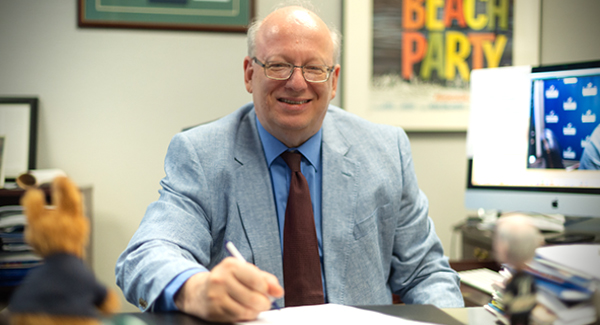
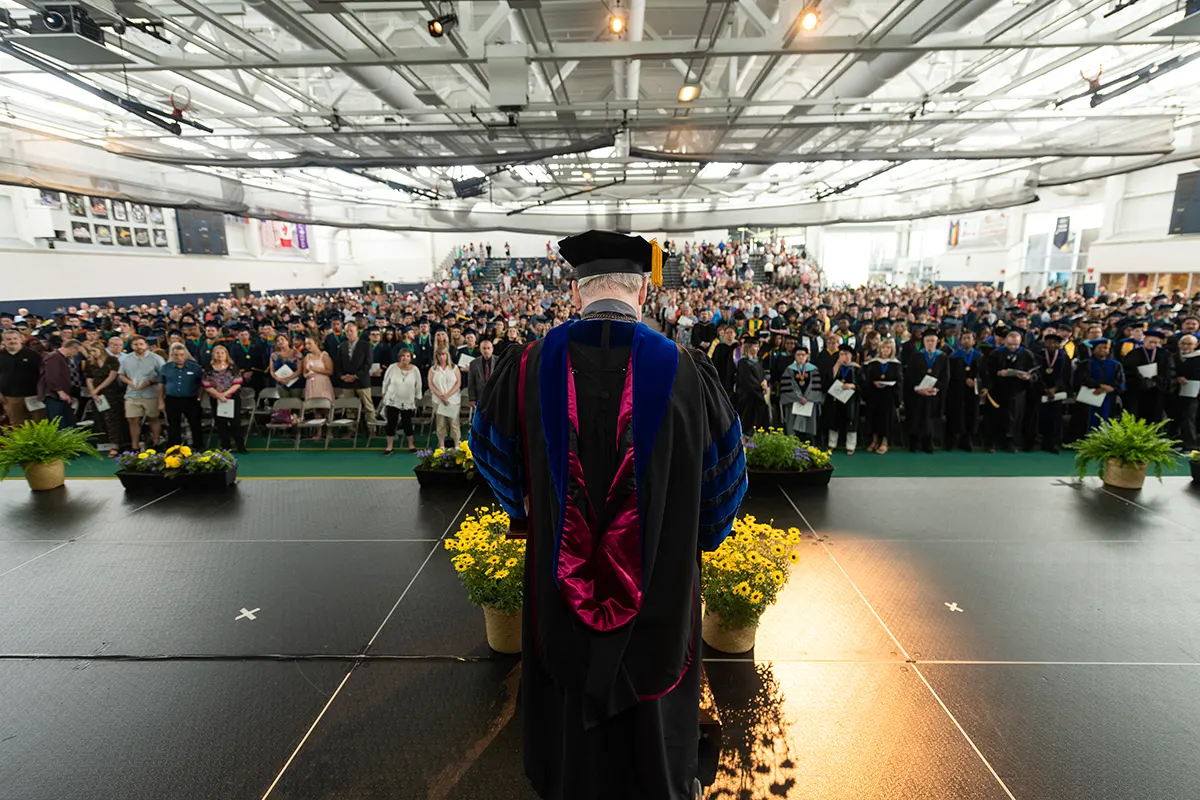
The cornerstone of SUNY Canton’s strategic plan is to provide the resources, environment, and faculty expertise students need to think critically and excel academically.
Associate Professor Dr. Kambiz Ghazinour, who teaches in the Cybersecurity program and oversees the College’s Advanced Information Security and Privacy Research Lab, secured a $256,000 National Science Foundation grant to support the creation of a game-based learning platform that teaches users how to mitigate security threats online. The grant also funds student research opportunities to assist with software development and examine how it can be adapted to the needs of the military. Cybersecurity student Kyle Meagher, located at Griffiss Technology Complex in Rome, is one of the first students to take part in this research.
In partnership with Clarkson University, the Center for Criminal Justice, Intelligence and Cybersecurity received a $100,000 National Science Foundation grant to fund undergraduate student research projects that examine the vulnerabilities of using fingerprints to safeguard personal information, as well as to analyze the potential for law enforcement professionals to capture fingerprints on smartphones. Co-Principal Investigators Dr. Elizabeth Brown and Dr. Kambiz Ghazinour will oversee the research.
With guidance from Canino School of Engineering Technology faculty and financial support from the Canton College Foundation, the 2021-2022 Student Steel Bridge Team displayed real-world skills by designing and constructing a scale model bridge that placed second in regional competition and 20th in the national American Institute of Steel Construction finals, continuing the College’s tradition of excellence at the annual event.
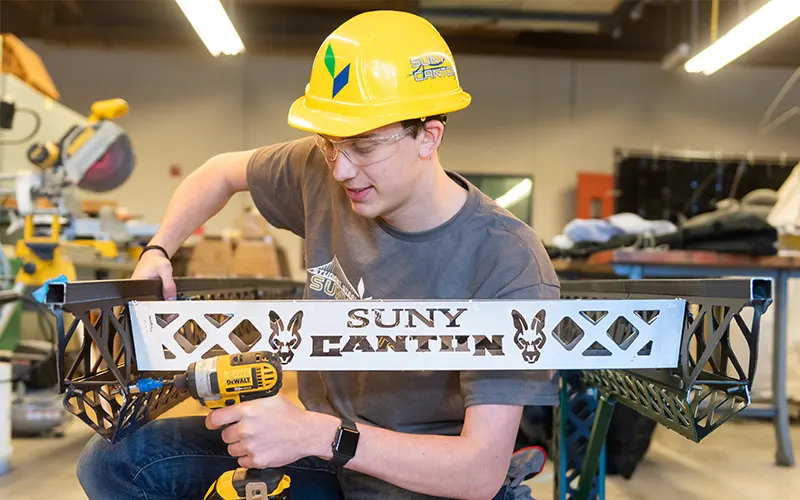
A new Presidential Internship Program launched this Spring provided 27 students with valuable paid work experience on campus. Positions were tailored to strengthen the competencies graduates need for a successful transition to the work force.
Civil and Environmental Engineering Technology students including Usuf Jabbie, pictured above left, and Ladonna Smith, investigated nutrient loading in a nearby lake and collaboratively presented their findings during the annual Scholarly Activities Celebration. They discovered faulty septic tanks and nearby farms are likely to be the cause of the pollution, providing valuable information about the area’s environmental challenges.
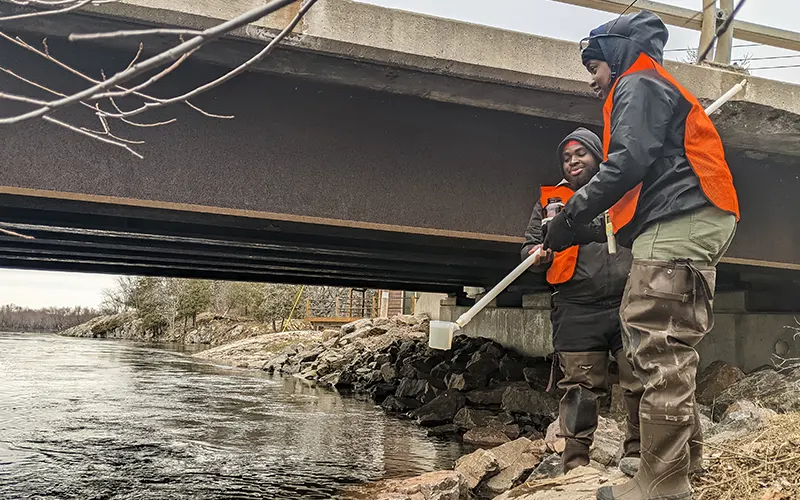
Donations from the SUNY Canton family totaled $2,114,000 in 2021-2022, which included more than $1 million in endowed funds to support scholarships. The Canton College Foundation also secured funding for 15 new endowments, the most ever in a single year.
This College’s supporters gave generously this year through fundraising campaigns and signature gifts. Generous benefactor Raymond G. Modell ’62 left a bequest in excess of $1.2 million to the College upon his passing in 2021, which will be used for scholarships and other student support programs. Don ’72 and Jamie Garrett pledged $100,000 to the Civil Engineering Technology program, and Don’s company, D. Garrett Construction, donated $50,000 to support the Student Steel Bridge Team. The second annual Athletics Giving Week raised more than $67,000 from 650 individual donors for equipment, travel, training and other athletic expenses.
The Canton College Foundation provided financial support to faculty research initiatives this year that span multiple disciplines. Assistant Professor Dr. Aksel Seitllari, who teaches in the Civil Engineering Technology and Construction Engineering Technology programs, presented research on a new pavement fatigue cracking test system at the Transportation Research Board annual meeting. Assistant Professor Dr. Marcella K. Chiromo, who teaches in the Applied Psychology program, presented research on acculturation and academia at the Comparative and International Education Society conference. Associate Professor Dr. Rajiv Narula, who teaches Chemistry, presented research on bioremediation at the American Chemical Society Spring conference.
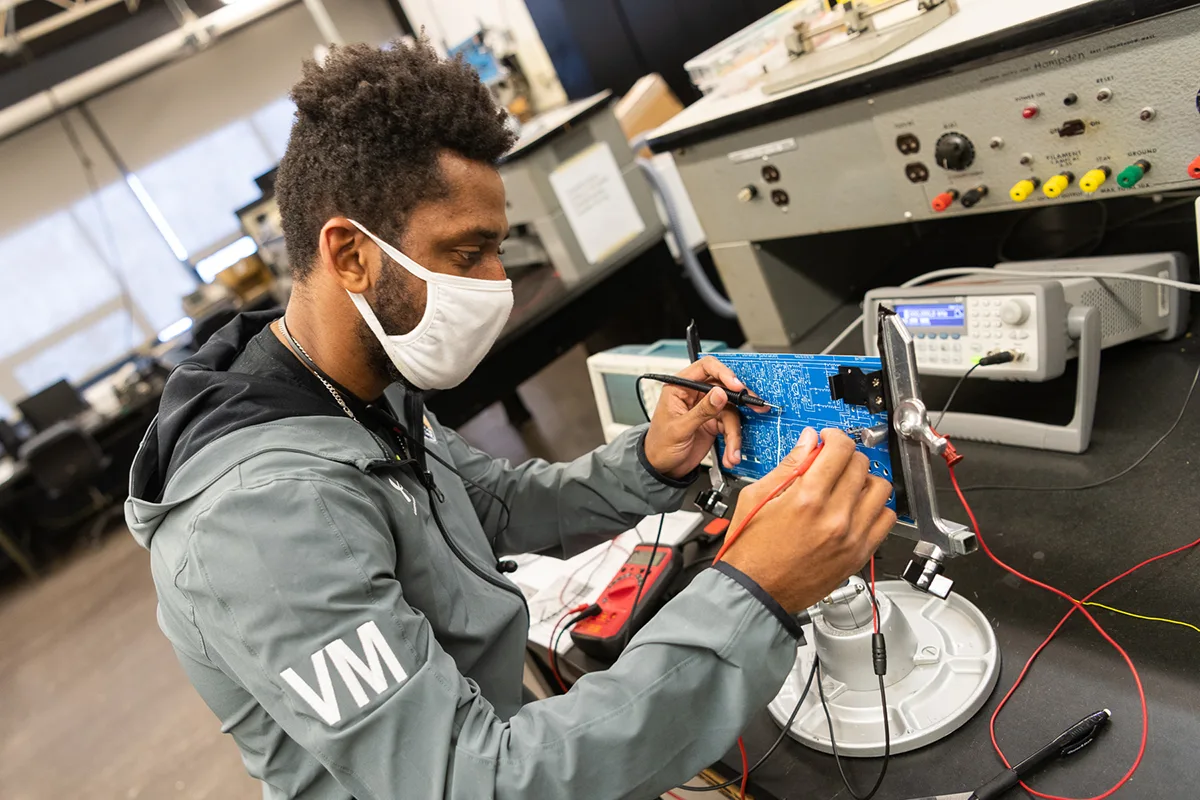
Examining processes and procedures across campus to identify efficiency opportunities, while aligning the budget with strategic initiatives and seeking out external funding sources, will increase our effectiveness, keep us competitive, and improve the student experience.
The migration to a new online learning management platform was a significant operational shift this spring. The College’s Center for Learning Design, Innovation and Online Instruction was among the first in SUNY to complete the transition in time to deliver more than 200 summer courses entirely in the new system. Implementing a uniform framework across all courses, rather than a disjointed process of offering some courses in the new system and others in the old system, provided students with a consistent learning experience.
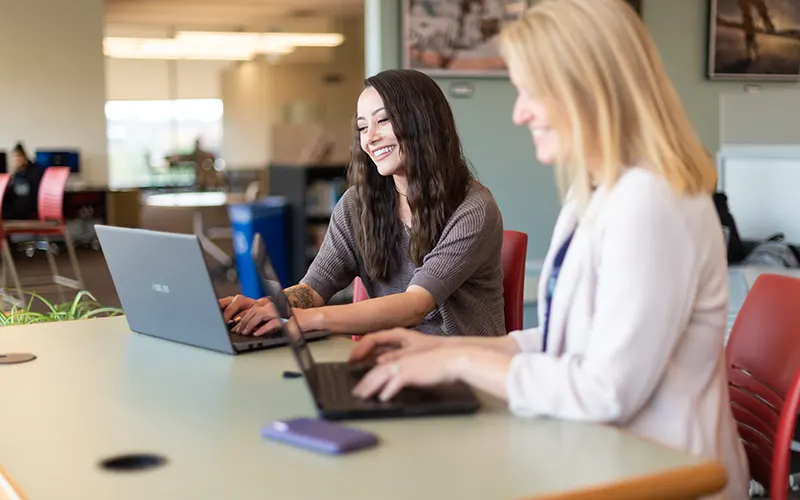
A streamlined participative budgeting procedure was implemented this Spring that requests funding proposals directly from faculty, staff, and committees to increase opportunities for collaboration and problem-solving. Proposals, which can range from equipment purchases to new academic degrees, are tied directly to strategic goals and move through appropriate paths before receiving consideration from the President.
Other administrative process improvements implemented across campus in the past year include:
Upon receiving a first-place ranking in the 2021 Student Opinion Survey for Dining Services, the College Association Inc. continued to evaluate operations and assess feedback data to inform decision making this year.
Dining Services has expanded its mobile ordering capabilities to three retail locations to broaden its customer base and improve the patron experience. In addition, the implementation of supply chain management software across all eateries identified approximately $10,000 in savings and provided more accurate inventory reports. The software also improved ingredient and nutritional information, which can be shared with customers.
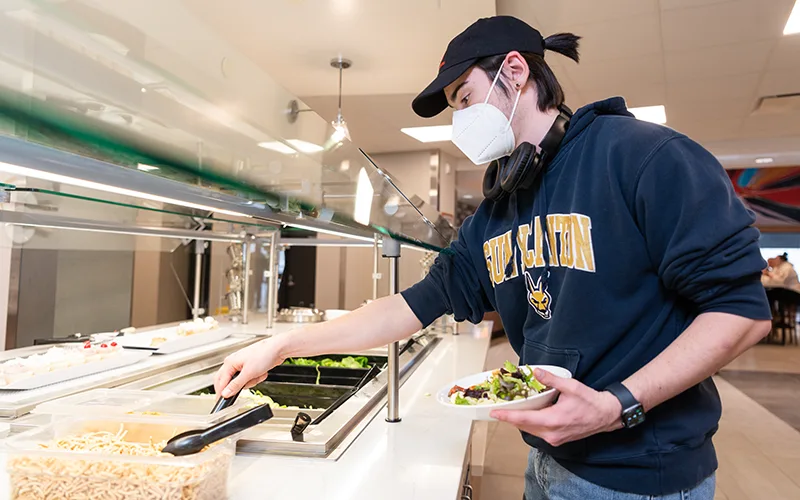
The College Association analyzed commuter student participation in meal plans to develop a more convenient, flexible option for the 2022-2023 academic year. In addition, a survey of all students was conducted to identify benchmarks for customer service, programs, and desired menu items. The results indicated a 92% customer satisfaction rate across all dining locations.
An ongoing composting initiative saved more than 3,000 pounds of food waste this year, and a utilization tracking system helped manage meal production volume. A strategy to reduce single-use plastics is ongoing with pilot programs to replace plastic soda bottles with aluminum cans and straws with cold lids in Cyber Café.

Ensuring a SUNY Canton education remains accessible to the broadest range of learners — from traditional college-age students to working professionals — is accomplished by developing and refining innovative, in-demand, and flexible programs. Focusing on the best practices that attract and retain successful students of all backgrounds and life stages keeps the College competitive.
Microcredentials are the latest extension of the College’s renowned flexible educational options. They are designed to add value to an existing traditional degree, or to be used alone to increase skills in a convenient, short-term learning option. The Center for Criminal Justice, Intelligence and Cybersecurity currently offers five microcredentials in a variety of areas.

This microcredential consists of two courses offered online or on campus that teach the investigative skills needed in the field during crime scene processing and medical examinations. Online or on-campus.
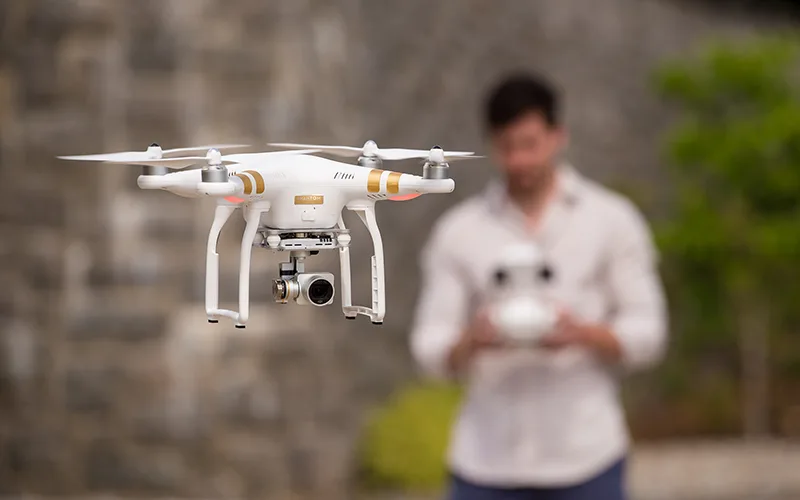
This stand-alone course gives students and professionals valuable training in drone operation and crime mapping using multiple software systems. On-campus.

The combination of four online courses are focused on the distinct phases of emergency management: hazard assessment, planning, response, and recovery. Online.

A trio of courses offer best practices in locating, excavating, collecting, and analyzing human remains. On-campus.
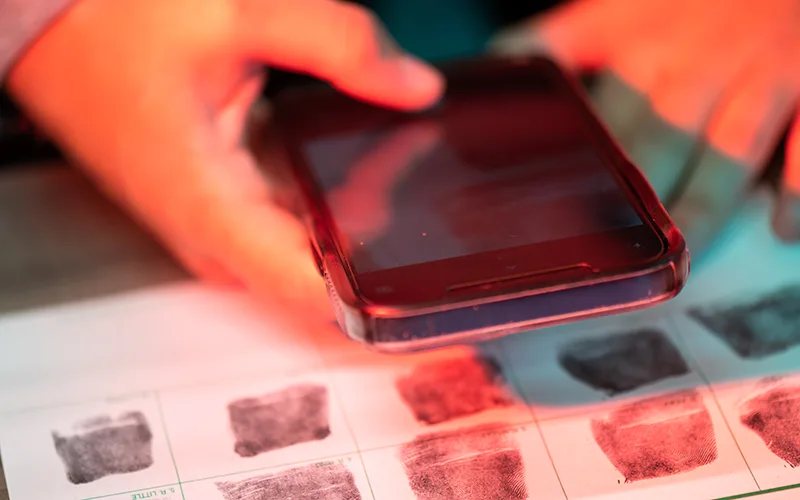
Composed of 60 hours of hands-on instruction, this microcredential features courses on forensic photography, fingerprinting, evidence collection and preservation, homicide investigation, and interrogation techniques. On-campus.
When traditional college-age students visit SUNY Canton, they are two times more likely to enroll. This data guided the planning of more in-person information events in 2021-2022 than ever before, as soon as public health data and guidelines permitted. A new summer open house event featured a kayak excursion and outdoor games, and no-cost fall and spring bus trips included on-campus overnight accommodations. An emphasis on micro-open houses throughout the year held in conjunction with signature athletic competitions offered guests more insight into campus life.
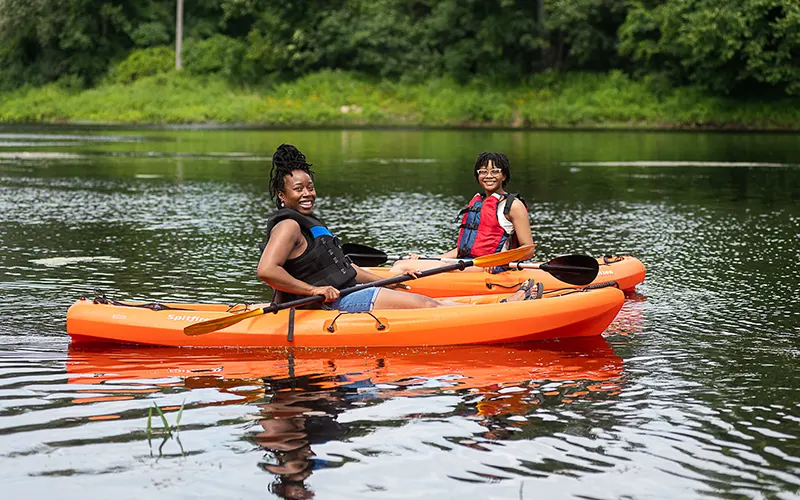
The Office of Admissions recognizes the importance of supporting diverse generational populations in higher education and has invested in the resources necessary to meet nontraditional students’ specific needs and time constraints. To assist those who work a traditional 9-5 schedule or may have other obligations during the day, Admissions dramatically extended its operations this year: increasing its 24 hours of total evening coverage in 2020-2021 to 180 hours in 2021-2022. These hours included many new virtual information events that were specifically tailored for this population.
Removing the barriers for transfer and “some college, but no credential” learners remains a priority, and those who want to start or continue their studies outside the traditional fall semester have the option to begin courses in the spring or summer and benefit from no-cost unofficial transfer credit evaluations. These student-friendly policies have contributed to attracting and maintaining a healthy market share of the transfer demographic, with the College to ranking second in technology-sector schools in total transfer applications.
Fall 2021
Spring 2022
The Jump Start and Academic Recovery programs continue to be valuable retention tools by providing students the resources and assistance they need to complete a degree. Adding more mentors to the Academic Recovery Program yielded a higher retention rate this year.
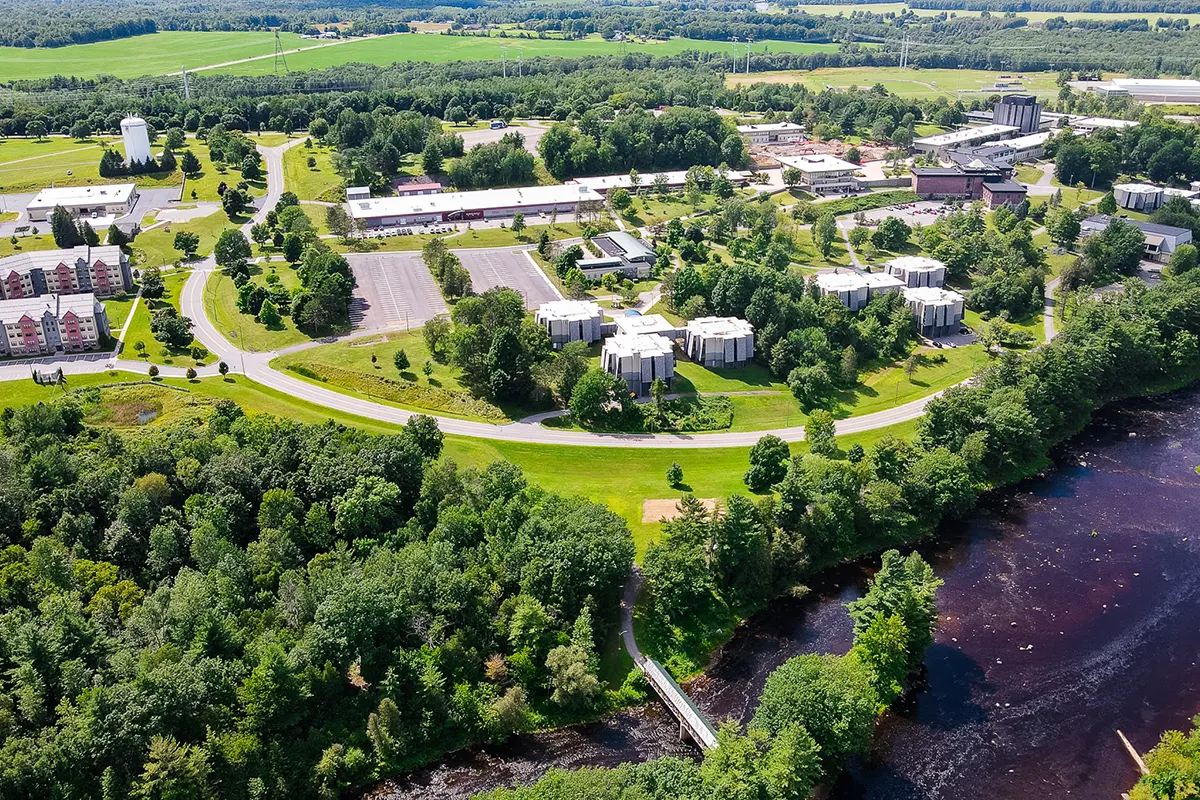
Incorporating energy-efficient systems into campus operations, as well as prioritizing sustainability in our curriculum, aim to reduce our environmental footprint and prepare students to be eco-friendly citizens.
Several seniors in the Canino School of Engineering Technology used sustainability as their research theme and showcased their findings at the annual Scholarly Activities Celebration.
Five Mechanical Engineering Technology seniors retrofit a fuel-burning motorcycle with lithium-ion battery power. The team completely removed the gasoline engine from a 2006 Victory Vegas Jackpot motorcycle and swapped in an electric motor to determine its economic viability.
Four Mechanical Engineering Technology students built a small-scale remote-control device to clean trash from small beaches. Called the “Beach Roomba,” the prototype resembles a small steel cage set on large black wheels with a plow and conveyor belt system to lift and filter sand.

The transition to geothermal energy is underway in French Hall, which will replace natural gas as a heating source. In addition, small-scale wind turbine technology is being investigated as a way to provide electricity to the building. Among other sustainability projects, the Facilities and Capital Projects Division is upgrading the ice arena lighting with energy-efficient LED fixtures and examining the use of rainwater collected at the Athletic Center to make the ice sheet.
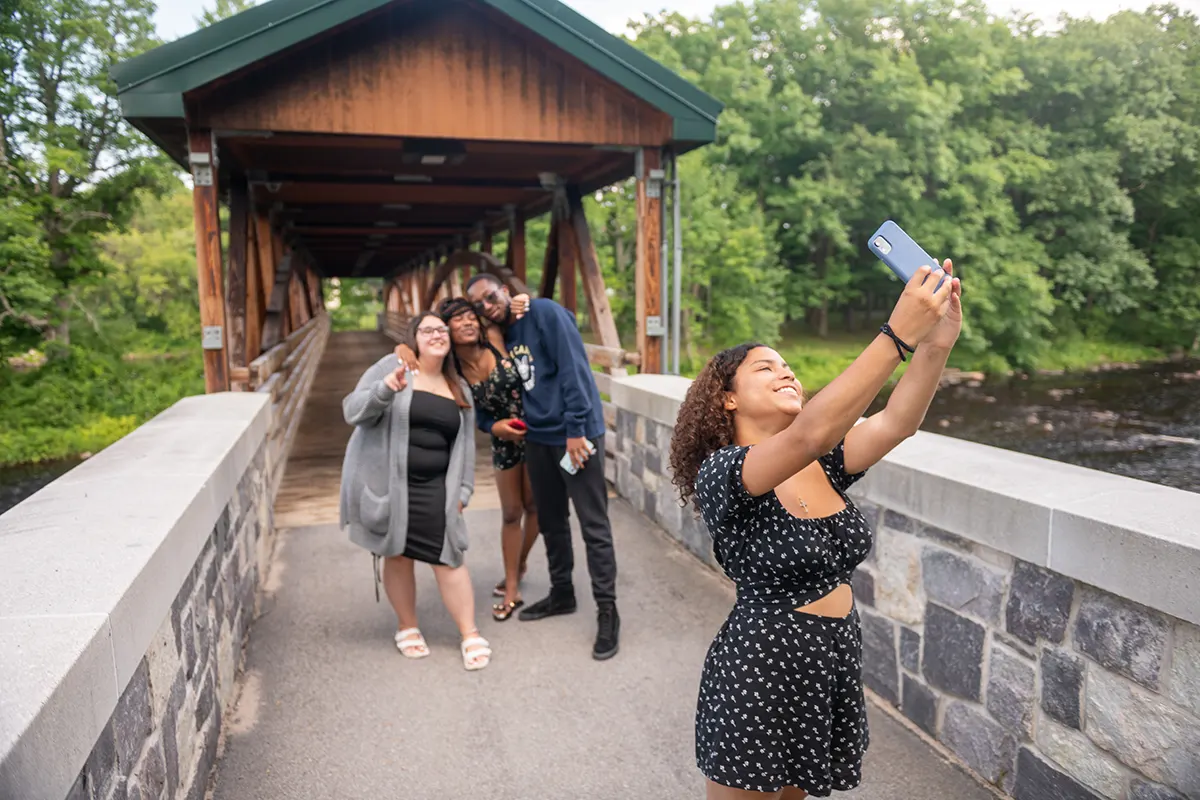
Every member of the College community is responsible for upholding the campus ethos, “Everyone is Welcome Here.” An ongoing commitment to diverse programming, coupled with implementing more inclusive policies and supporting students from underrepresented backgrounds, helps create and maintain an environment where everyone can succeed.
Hosting guest speakers from diverse backgrounds and tackling topics related to identity, culture, racism, stereotypes, and inclusivity promote productive conversations and offer important lessons. Author Robin Wall Kimmerer, enrolled member of the Citizen Potawatomi Nation, discussed the indigenous practice of reciprocity with nature. A screening of the documentary “More Than a Word” during Native American Heritage Month explored the impact of derogatory terms used for sports mascots. In honor of Black History Month, a discussion about civil rights activist Fannie Lou Hamer offered insight into her extraordinary life.
The annual International Education Week celebration seeks to educate the SUNY Canton community about the cultural heritage of the campus’ diverse student populations, as well as promote the benefits of international education. The week was filled with exhibitions, workshops, food, and fun.
The latest edition of “After Canton” featured outstanding female STEM students and graduates, as well as friends, faculty, and alumni who are helping the College continue its tradition of being a welcoming and supportive space for all women and girls who want to pursue careers in these fields. New scholarships, such as the “Women in Electrical Engineering Technology Scholarship,” aim to increase diversity in traditionally male-dominated programs by providing financial support to female students.
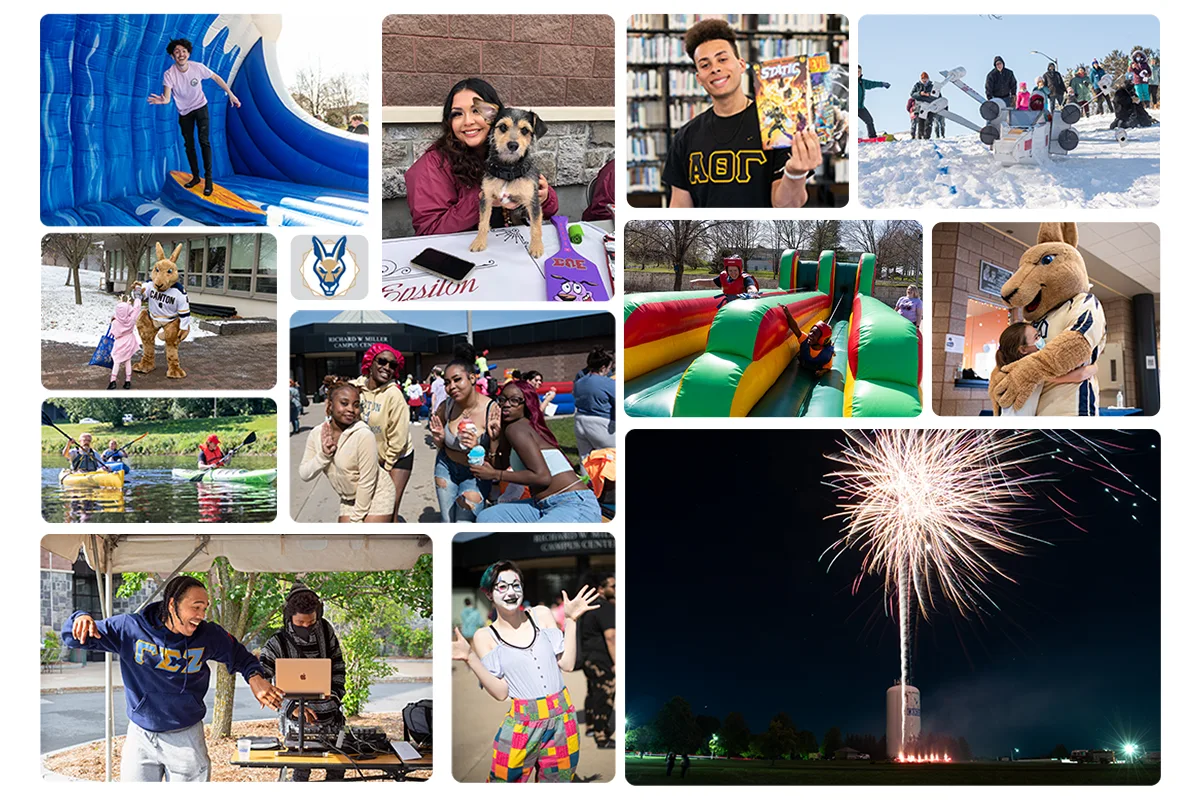
Creating the best student life experience possible was one of the most important initiatives of 2021-2022, after a year of remote learning and social-distancing requirements put a pause on the relationship- and community-building opportunities that make SUNY Canton feel like home.
The Student Affairs Division led an ambitious “Best Year Ever” initiative that dramatically increased the availability of extended in-person extracurricular activities for the 2021-2022 school year. The Student Activities, Involvement, and Leadership Office largely spearheaded this work by hosting a total of 438 educational and recreational activities, including concerts, outdoor activities, performances, movies, and sports contests.
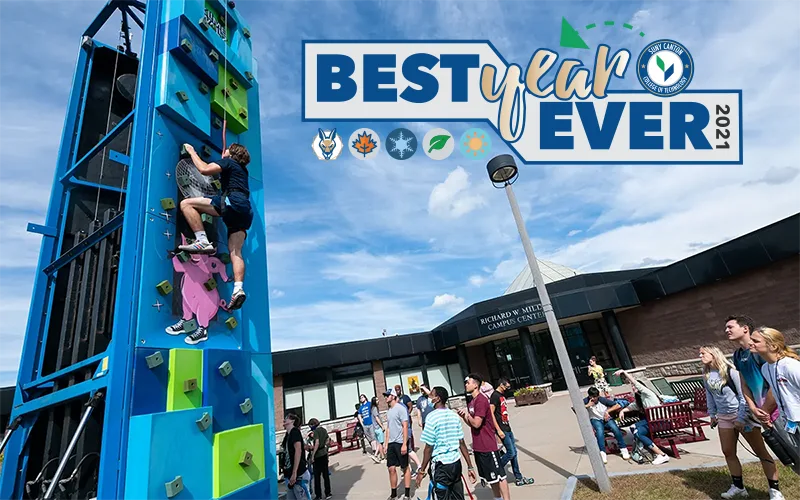
The launch of two new themed housing options this year connects students with similar interests and enhances the college experience. The Esports Wing, which features renovated rooms and a common area equipped with high-end gaming equipment, was filled to capacity this year and is expanding this Fall. In addition, the Office of Residence Life is launching a dog-friendly housing option for the 2022-2023 academic year that builds on the popularity of the College’s long-running pet-friendly accommodations.
Central to students’ well-being is a supportive community. The Student Affairs Division has prioritized consistent messaging about the physical and mental health resources available on campus if students are struggling. The Counseling Center sponsored or co-sponsored 125 educational programs this year, most notably a “Fresh Check Day” to increase awareness of available mental health resources and reduce the stigma surrounding suicide. Other events included an alcohol awareness seminar and workshops on how to reduce stress.
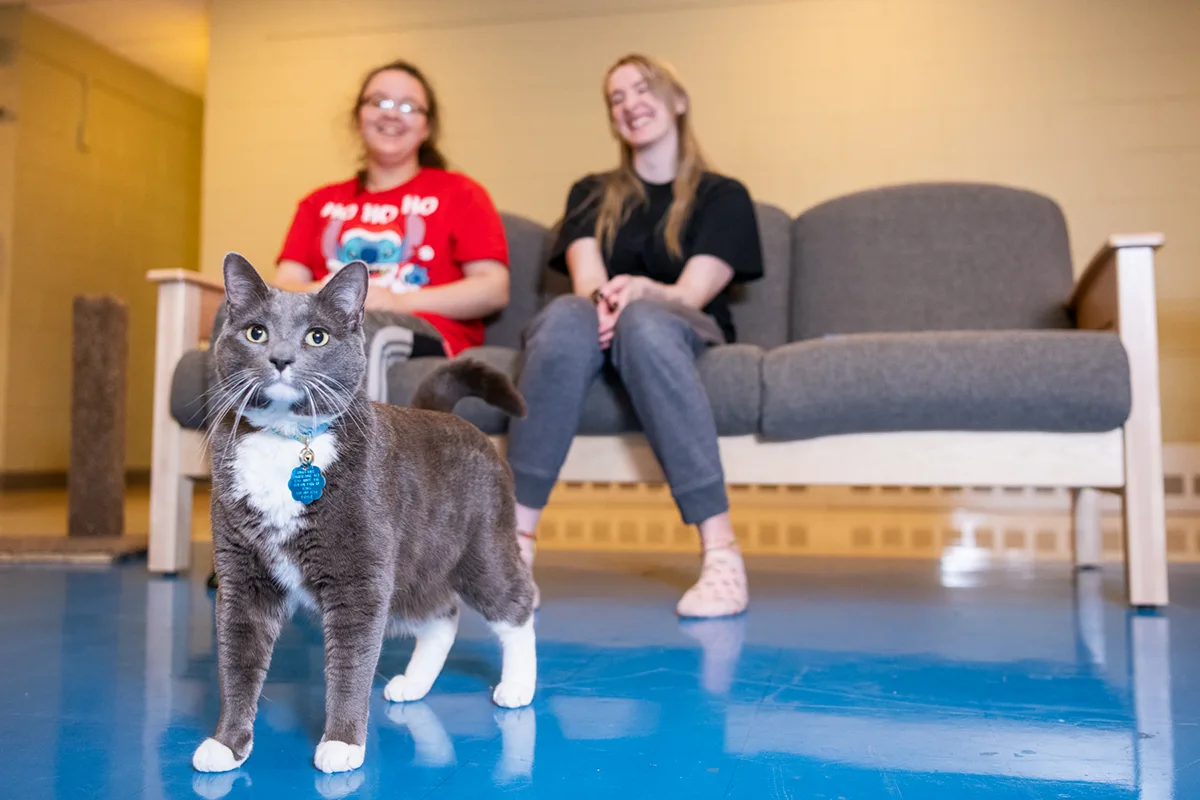
Telling the SUNY Canton story through proactive media engagement and creative marketing initiatives strengthens our reputation as a premier college of technology. Developing mutually beneficial strategic partnerships with civic and private organizations expands our visibility and provides value to the local economy.
Faculty, staff, and students have been featured in an array of national and regional news stories during the past year, and the Public Relations Office supported and promoted those connections. A U.S. News and World Report story highlighted Adjunct Professor Dr. Erica Sharpe’s research linking yoga nidra with better sleep patterns. Assistant Professor Kelly Peterson appeared on the Discovery Channel’s documentary series “See No Evil” as an expert in a missing person case. Professor Dr. Charles Fenner and Associate Professor Dr. Umesh Kumar were subject-matter experts in a regional story about inflation. Several students and Residence Life staff were featured in an “Inside Higher Education” article about pet-friendly campus accommodations.
To generate excitement and awareness about the expanded in-person academic, recreational, and athletic activities planned for the Fall 2021 semester, the Public Relations Office launched a social media and television marketing campaign that generated nearly 1 million impressions in a little over two weeks and earned a 2022 CASE Bronze Award and a 2022 SUNYCUAD Award.
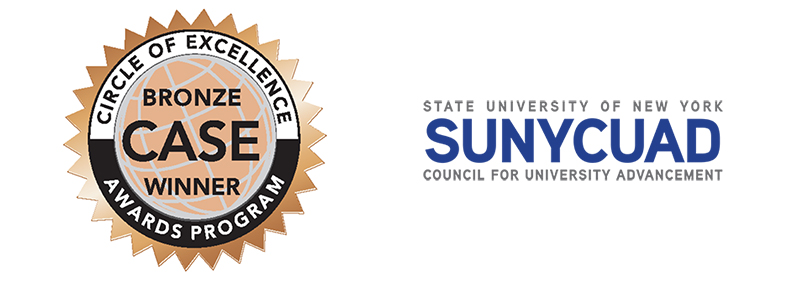
The student profile series “People Like Me” (and occasionally “Pets Like Me”) continued this year to illustrate the diversity of our student body and pet-friendly culture. Personal testimonials offer a glimpse into the student experience and demonstrate the value of a SUNY Canton degree.
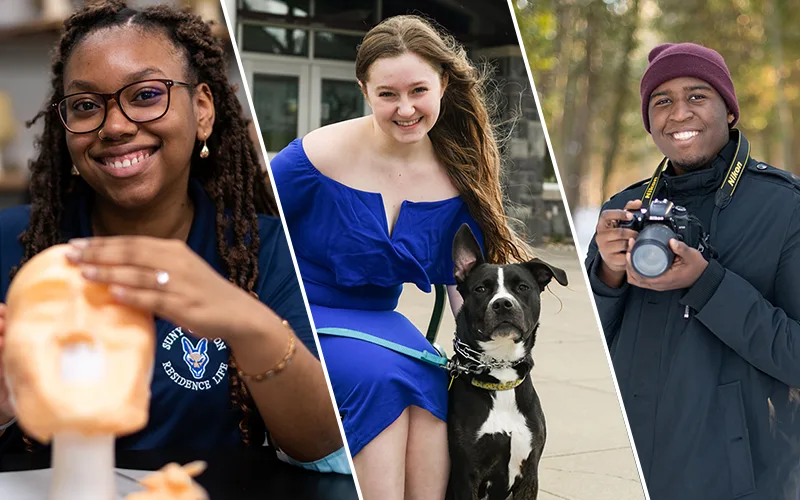
The Small Business Development Center continues to be an essential resource for entrepreneurs to start, run, and grow their businesses. An important partnership between SBDC, the College, and other local agencies will provide free training and support to those who want to establish their own home-based childcare facility.
